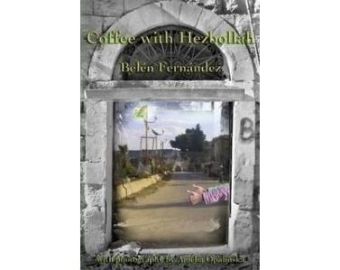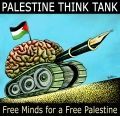
Publisher:
Bonnie King
CONTACT:
Newsroom@Salem-news.com
Advertising:
Adsales@Salem-news.com

~Truth~
~Justice~
~Peace~
TJP
Dec-02-2010 17:31

 TweetFollow @OregonNews
TweetFollow @OregonNews
'Coffee with Hezbollah' review by Mary Rizzo
Salem-News.comFollowing is a review of Belén Fernandez' book Coffee with Hezbollah, written by Mary Rizzo for Palestine Think Tank.
 Coffee with Hezbollah |
(ROME) - Before reading the wonderful book by Belén Fernández “Coffee with Hezbollah”, I never would have imagined it possible to read about the post-destruction aftermath of Lebanon and smile at the same time.
The pretext alone, a hitchhiking trip from Turkey to southern Lebanon simply “feels” dramatic, especially when the memory of Brides on Tour, was still fresh.
Would two young, attractive, independent women meet a better fate than the raped and assassinated Pippa Bacca, travelling in the same way, with each new step being not only a test of their own wits and good fortune, but also a constant surrender to trust in a world wracked by its encounter with the ultimate violence?
Belén and her friend and travelling partner Amelia Opalinska were on the road in much the same way as Che Guevara and Alberto Granado, and it’s not incidental that they recount moments from their adventures in Latin America and Cuba in “Coffee with Hezbollah”.
In a similar way to the historically relevant on the road experiences of the revolutionary, conversations described and rapid changes in plan (or even in mood) allowed the reader to feel a sincere interest in the persons they encountered as well as a way to describe the larger paradigm of Lebanon.
The people who populate this book, with their idiosyncrasies, their habits, beliefs and expressions, are part of the story, an exchange that appears to these eyes only slightly hampered by needing to resort to “pidgin English” (however, the fact that many of these people spoke some English at all is testament to their desire to reach out to the world). Nevertheless, each conversation and encounter left up to fate brought a new insight, a new interpretation of a fragmented reality.
Reading this book, I often reminded myself that this endeavour, simple on the surface of things, is actually quite complicated if one is a creature of habit or seeks a modicum of security. I kept thinking, “how brave they are,” and “I’d never let my daughter do that,” much in the way Belén describes her own family, Americans who admire the great revolutionary spirit of they find in many people’s struggles. Her parents would boast about this exciting feat to their friends, but exhibit particular paternal worry to her.
There is indeed a dynamic of the contradictions, the paradox of wanting something and also wanting something entirely different that the author detects in many of those she describes. It is a description of compassion and love that never, even for five seconds, sinks into banal sentimentalism. There is one moment in the book, where actually, the tragedy of what evil has hit the innocent Lebanese people is all brought home in an admirable piece of narrative journalism.
It is an encounter with a family in the south of Lebanon where only the strongest readers might be able to hold back the tears. It is an encounter with Maryam, a young girl whose family could have been “evacuated” with others escaping the bombing raids of Israel, but chose to remain because the elderly members would not be allowed to join them.
 Click this link to order Coffee |
It is an encounter of such exquisite beauty, innocence, sadness and love that it was well on its way to breaking my heart. Yet, the manner in which this story is told does not tip the hat to cheap emotion, but captures the essence of the kind of suffering, and the “love of life” that is never abandoned by the Lebanese people.
And, as artfully as the drama of this story was told, the author throws us a life-saver and the bittersweet irony of a post-war survival period, with its fears, hopes, black humour and tedium have us back in the passenger seat, waiting to see the next thing, with a few expectations, but not many demands made.
In Italy, they would say, “very easy”, and this way of going with the flow of things, looking at the surface but also below it and not imposing one’s own literal or figurative baggage on those who let you hop a ride, keep the unexpected always close at hand, making for absolutely entertaining reading.
One may ask oneself at this point, with a title like this, is the book a political manifesto? Has there been a meeting with Hezbollah? Well, I don’t want to spoil the surprise for anyone, but Hezbollah is always present but then again, not quite. Its physical presence is represented in things that are symbolic or even domestic. It is an unreachable entity that however is part of so many personal experiences.
Persons encountered that, like many in the book, are given nicknames that the travellers use as a sort of code between themselves, but which render the idea for the readers in a clever way. The dialogue between Wannabe Hezbollah (WBH) and Real Hezbollah (RH) is a case in point of the complex nature of a militia that is homegrown and revered by the populace: it is both mythical and familiar.
What better way could I have to understand this reality than in the conversations with those whose lives are directly affected by Hezbollah?
The complexity and fragility of Lebanon (even prior to the war) is reflected in many of the encounters with people of various religious and social backgrounds. Lebanon, in this description seems like an ageing, teetering ballerina, beautiful and determined to depend on the glorious past and endless tests of endurance and skill to get through the ballet, but the audience is waiting to see the fall, hoping they never do, but not that surprised if it should happen. The one leitmotif of the encounters, however, is the acclamation by the Lebanese themselves that they love life. The reasons given vary, but this affirmation is never doubted by anyone.
One of the more painful points of the book is not only the description of the devastation that has hit Lebanon, which is stated in a way rich in irony and knowledge of the forces at play, but the moments when the Palestinian refugees and their living situation and tragedies are spoken of. It is like a bruise in a beautiful face, and the levels of suffering that has been inflicted on the Arab people of the region reaches its zenith here. Evidently, shared misfortune and misery don’t always breed brotherly love.
As stated at the start, this book speaks about one of the blackest and most sinister aggressions in recent history. How one can write about it, with that recent presence of destruction ever present, and still make the reader smile and laugh is one of the best things about this book.
Like Erma Bombeck wrote, “When humor goes, there goes civilization,” and I would not be surprised if this was part of the author’s philosophy. Not seeking “art” as the Brides did, (and art generally avoids humour), they found what the Brides lost, trust and genuineness.
With trust comes revelation, and with that, comes humour, in my opinion, one of the best human qualities anywhere it manages to surface. To find humour is to love the human condition and to embrace our frailty.
Yet, the humour here is not only in some of the situations, which of themselves at times were absurd, the search for the nine-year-old mother, but especially the adventures with beverages specifically and their world of paraphernalia such as straws, teabags, bottles and cups as well as trips to the wine-producing farms comes to mind, but it lies in the deep knowledge of journalistic expression.
References to history, current events, especially to the language of war and deception we are accustomed to hearing (but derived of their actual content) by the mass media reveal a profound understanding of the mechanisms of communication and in their use, often in an original context, there are moments of sheer brilliance and humour.
The author does not pull off this particularly difficult device once in a while, but consistently and successfully. That makes for one hell of a pleasurable reading experience.
I grew up loving any ride in my parent’s car, and reading “Coffee with Hezbollah”, I felt that same good feeling whenever I got a window seat, rolled down, daring to stick my arm out when parental eyes were focused on the road. Sometimes it’s the little car trips that mean the most.

 Mary Rizzo is an art restorer, translator and writer living in Italy. She is Editor and co-founder of the widely read Website: Palestine Think Tank, and co-founder of Tlaxcala translations collective. Mary's personal blog is Peacepalestine. Mary Rizzo can be reached at: humdrum2@libero.it She is from a multi-faith Jewish-Christian background but is non-practising.
Mary Rizzo is an art restorer, translator and writer living in Italy. She is Editor and co-founder of the widely read Website: Palestine Think Tank, and co-founder of Tlaxcala translations collective. Mary's personal blog is Peacepalestine. Mary Rizzo can be reached at: humdrum2@libero.it She is from a multi-faith Jewish-Christian background but is non-practising.
Articles for December 1, 2010 | Articles for December 2, 2010 | Articles for December 3, 2010
Quick Links
DINING
Willamette UniversityGoudy Commons Cafe
Dine on the Queen
Willamette Queen Sternwheeler
MUST SEE SALEM
Oregon Capitol ToursCapitol History Gateway
Willamette River Ride
Willamette Queen Sternwheeler
Historic Home Tours:
Deepwood Museum
The Bush House
Gaiety Hollow Garden
AUCTIONS - APPRAISALS
Auction Masters & AppraisalsCONSTRUCTION SERVICES
Roofing and ContractingSheridan, Ore.
ONLINE SHOPPING
Special Occasion DressesAdvertise with Salem-News
Contact:AdSales@Salem-News.com

googlec507860f6901db00.html



Terms of Service | Privacy Policy

All comments and messages are approved by people and self promotional links or unacceptable comments are denied.
[Return to Top]
©2025 Salem-News.com. All opinions expressed in this article are those of the author and do not necessarily reflect those of Salem-News.com.